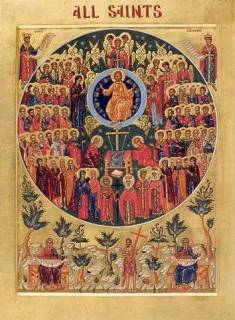Hear, O Israel!
The Lord our God is Lord alone!
You shall love the Lord your God with all your heart,
with all your soul,
with all your mind,
and with all your strength. Mk 12:29
The Shema, which affirms the oneness of God and the command to love God always and in all ways, is the foundation of Jewish morning and evening prayer, and many might say, the ground of its spirituality. That Jesus repeats the Shema when asked by the Pharisees about his opinion regarding the first and most important commandment of the law not only affirms its importance for Christians, it also reminds us that Jesus came and wanted to be seen as an observant Jew.
While it might be fashionable these days to emphasize spirituality over against religion, the simple practices of our religious tradition, rooted in the Shema, and Jesus' challenge to visit the sick, feed the hungry and clothe the naked, are important for an authentic Catholic life. Praying each day, celebrating the Eucharist on Sundays and serving others through simple acts of Christian charity and justice help us remember who we are, especially when we can do them together as a community of faith.
Finally, it is good for us to listen again to the Shemah and Jesus' use of it. We must love God with everything we are and do, with our whole hearts, souls, minds and strength. When we hold nothing back in our love for God and others, we witness to a God who has always done the same for us.
Today, love someone completely and pray for them.
Who or what has taught you most about what it means to love God and one another?
Finally, it is good for us to listen again to the Shemah and Jesus' use of it. We must love God with everything we are and do, with our whole hearts, souls, minds and strength. When we hold nothing back in our love for God and others, we witness to a God who has always done the same for us.
Today, love someone completely and pray for them.
Who or what has taught you most about what it means to love God and one another?

